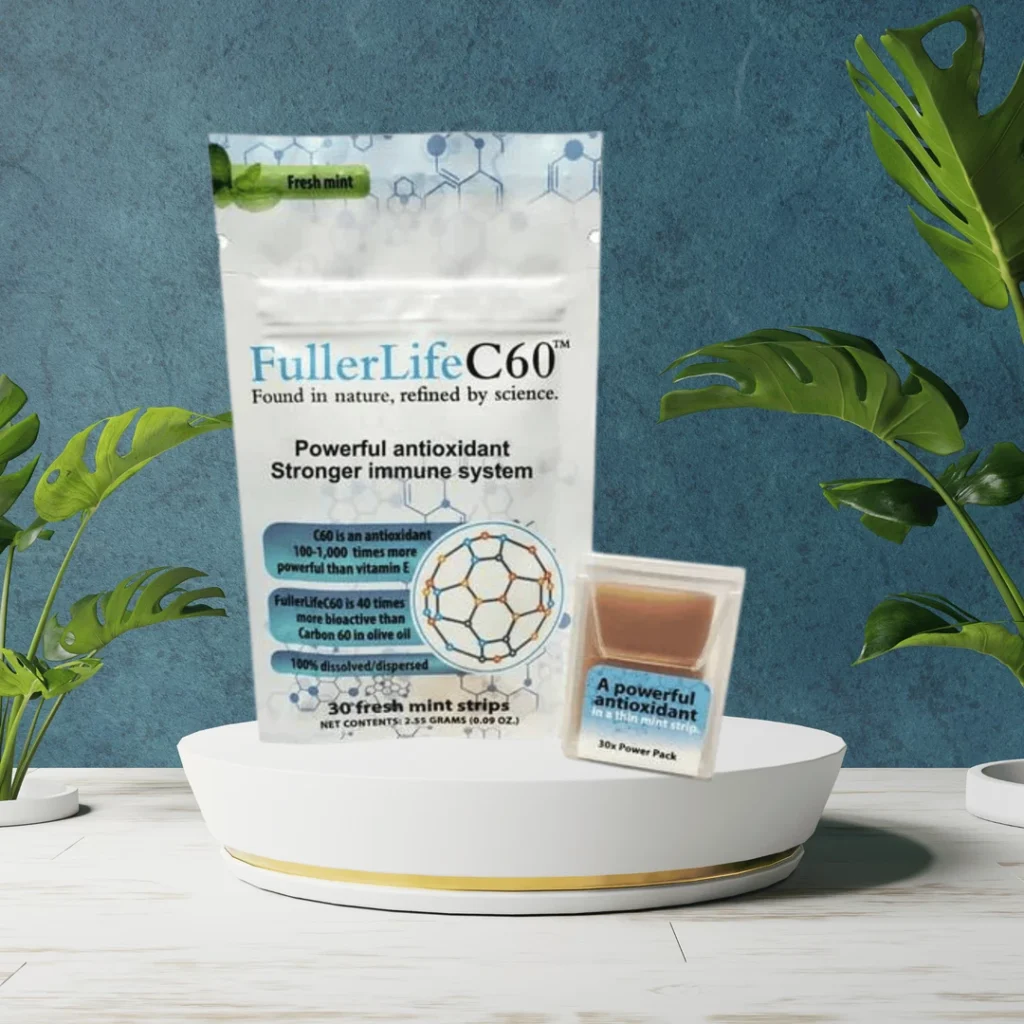If you study science and the research done into improving our lives, you will come across many stories of positive outcomes that were unexpected.
A famous example of this is the discovery of penicillin.
Dr. Alexander Fleming was studying bacteria in his lab when he decided to go on vacation. When he left, he forgot to throw away the petri dish that contained the bacteria. Upon his return from vacation, Dr. Fleming found a mold growing in the dish that had destroyed the bacteria.
This unexpected outcome produced the antibiotic that has saved over 200 million lives. Now that’s a powerful discovery.

It would be pretty long if you were to make a list of discoveries such as this. The simple process of seeking one outcome often leads to something completely different. And really, this is science at its best. There are no great discoveries without curiosity and asking, “What if.”
Eleven years ago, this curiosity led to an exciting discovery. One that could significantly impact your health and even your longevity.
A Study with surprising results
Scientists are preparing to discover something groundbreaking in an air-conditioned laboratory in Paris, France. The year is 2012, and these researchers have been waiting for all the elements to come together, allowing this study to happen.
In this clinical, sterile-looking setting, they have 60 Wistar rats. And they are prepping them for an experiment. The object being studied is an antioxidant.
And as you may know, antioxidants are essential in regulating free radicals within your body. This antioxidant is different, however. It’s called Buckminster Fullerene, or C60 for short. And it’s the smallest of all known antioxidants.
It was discovered about 20 years prior to this research. C60s potential had only been guessed at until now and the goal of this study is simple:
At what dose is C60 toxic to a living organism? In other words, how much C60 can we give to these rats before it is toxic?
The scientists involved were well aware of what C60’s potential might be. However, to begin even thinking about its effects on humans, they first must establish at what point it could be harmful.
The rats were acclimated to their environment, with plenty of food and water. They even had a 12-hour lights-on, lights-off cycle for consistency.
Then, the study began after the rats had been acclimated to their environment. Some rats were given no C60, of course. And others were given olive oil only. And another group was given C60 suspended in olive oil as a delivery mechanism.
Now, remember, the goal of this experiment was to see at what level C60 is toxic. This is what they found out.
A Wister rat has an average lifespan of 24 to 36 months. The rats given C60 received what researchers thought would be a toxic dose. However, to their surprise, these rats lived for up to 66 months!
Now that’s an incredible boost to longevity.
One researcher put it this way:
“Thus, based on previous investigations, C60 should be the most efficient ever material for extending lifespan.”
How’s that for an unexpected outcome?
The outcome of this study isn’t surprising to those that initially discovered C60. They knew they were onto something and that an antioxidant this small could have huge implications.
To help you understand how and why C60 achieves this, let’s quickly review what an antioxidant and a free radical do. Then we’ll talk about the best way to get your C60.
Free Radicals and the harm they can cause.
Unstable atoms that cause harm to the body are called free radicals.
Think about an atom as the center of a solar system. Around this atom are planets in orbit called electrons. Electrons orbit the atom in a shell, which is supposed to contain a set number of electrons for the atom to be stable.

If electrons are missing from one of the outer shells, this atom can bond with another atom. To complete their outer shell, these atoms react quickly with other atoms, stealing their electrons and causing havoc. This kind of atom is called a free radical.
Once oxygen molecules split into single atoms lacking paired electrons, they become unstable free radicals. They then begin seeking out other atoms or molecules to bond with. As this continues, a process begins which is called oxidative stress.
As oxidative stress continues, it can damage the body’s cells, lead to various diseases, and increase the symptoms of aging, such as wrinkles.
The free radical theory was first developed in 1956, so it has a long history with much research devoted to it.
As we age, our body’s natural defenses to free radicals weaken. Thus, more free radicals accumulate in the body, leading to more oxidative stress. This leads to more damaged cells, degenerative processes, and “aging.”
Studies have connected oxidative stress from free radicals to the following conditions:
- Central nervous system diseases such as Alzheimer’s and dementia
- Cardiovascular diseases such as clogged arteries
- Autoimmune diseases such as rheumatoid arthritis and cancer
- Age-related vision declines and cataracts
- Diabetes
- Genetic diseases such as Huntington’s disease and Parkinson’s
- Age-related changes in appearance include wrinkles, graying hair, hair loss, and loss of skin elasticity.
There is hardly a disease process known that cannot be linked in some way to the damage of free radicals.
Numerous studies have shown a correlation between age and the number of free radicals within our bodies. This explains why even though someone is completely healthy, they still show signs of aging. Our bodies have trouble keeping up with the total amount of free radicals over time.
Tackle free radicals with antioxidants.
Found in berries, citrus fruits, and carrots, antioxidants are known to prevent the damaging effects of free radicals. Antioxidants prevent the oxidation of other molecules by donating an electron to free radicals, thus making them stable atoms again.
They can lose these electrons and do not turn into free radicals. This makes antioxidants unique and valuable in eliminating free radicals in your body.
There are many types of antioxidants, and they all behave differently within the body. Some of the more common ones that you have undoubtedly heard of are:
- Vitamin C
- Vitamin E
- Beta-carotene (found in carrots and other vegetables)
With the correct number of antioxidants counteracting the effects of free radicals, it may be possible to slow down the effects on our bodies, the environment, and time itself.
C60 and its potential
As discussed at the beginning of this article, C60 could be the most crucial discovery for extending life.
It’s called C60 because 60 carbon atoms give this molecule a soccer ball shape.
C60 was continually researched, and in 2012 the landmark Baati Rat Study (referenced above) was released.
Through later research, scientists found that C60’s powerful properties may help with a long list of issues:
- Oxidative stress
- Radiation protection
- Sun damage and sunburn
- Viral infections
- Allergies
- Enhancement of mental activity.
The research also found that C60 may stimulate the immune system against cancer and promote healthy hair growth.
This is why in testimonials for C60, the positive results vary from less aching joints to more energy and better recovery for working out and staying in shape.
While suspending C60 in olive oil is an effective way to distribute C60 to the rest of the body, a better way has been discovered.
The C60 gurus at FullerLife C60 have a patented delivery system where the C60 is fully dissolved, not suspended. This makes the C60 much more bioavailable (easier to absorb). Getting it to where this powerful antioxidant is needed the most.
This picture shows the difference, and you can see that FullerLife’s C60 (pictured on the right) is thoroughly dispersed.
So, If you are looking for a way to combat the onslaught of effects from free radicals and you want the most effective C60 possible, look no further than FullerLife C60.
FullerLife C60
Excessive free radicals within the body have been implicated in over 100 human diseases. Give your body the best fighting chance with FullerLife C60.
FullerLife C60 is the only solubilized C60 available.
It’s not crystalized C60 suspended in oil, which reduces the bioavailability of the C60. Instead, FullerLife C60 is known for its ability to be delivered in the body fully dissolved.
This form of C60 has an antioxidant value 300 times greater than Vitamin C and five times greater than curcumin.
Now that’s antioxidant power.
FullerLife C60 comes packaged as tiny edible gum-based strips that completely dissolve in your mouth.
It is shelf stable and convenient for those on the move.
And the testimonials from FullerLife C60 users speak for themselves. Here’s one from Jo –
I love FullerLifeC60! This product has helped me with increased focus and energy and as it is a powerful antioxidant, I have experienced greatly reduced pain in my joints. I have tried many brands of C60 and all have been effective but I believe FullerLifeC60 is the most effective for me. The consistency and convenience of the delivery system makes it great for travel. No more oil spills!“
And Brandon goes on to add this great testimonial:
“After taking FullerLife C60 for almost a month, it snowed about 10 inches and I had to shovel a lot of snow out of my 100 foot long driveway. I’m a very sedentary person and in the past, when there was this much snow, I’ve had sore muscles all over my torso for about 3 days after shoveling it. To my surprise, after shoveling 10 inches of heavy, wet snow out of my 100 foot long driveway, I was not sore at all the next day! Furthermore, this C60 seems to help me stay alert and awake after a night of not sleeping well. It doesn’t help me sleep, but it helps the next day. I would recommend it to anyone.” – Brandon B.
So, if you want to decrease your joint pain, boost your immunity, and increase your energy levels – and receive many more benefits from the most potent antioxidant – click the link above now.
* In partnership with our friends at FullerLife C60* Photo courtesy of FullerLife C60
* These statements have not been evaluated by the Food and Drug Administration. These products are not intended to diagnose, treat, cure or prevent any disease.
* The information available on ewellnessmag.com, including text, graphics, and other materials is for informational purposes only. Reliance on any information in ewellnessmag.com is at the user’s own risk. Sponsored product placement may appear in the article. The visitor of this website acknowledges that the information available on or through ewellnessmag.com is not and is not intended to be a substitute for professional medical advice. Copyright © 2023 Brawo Press, Inc. All rights reserved.





